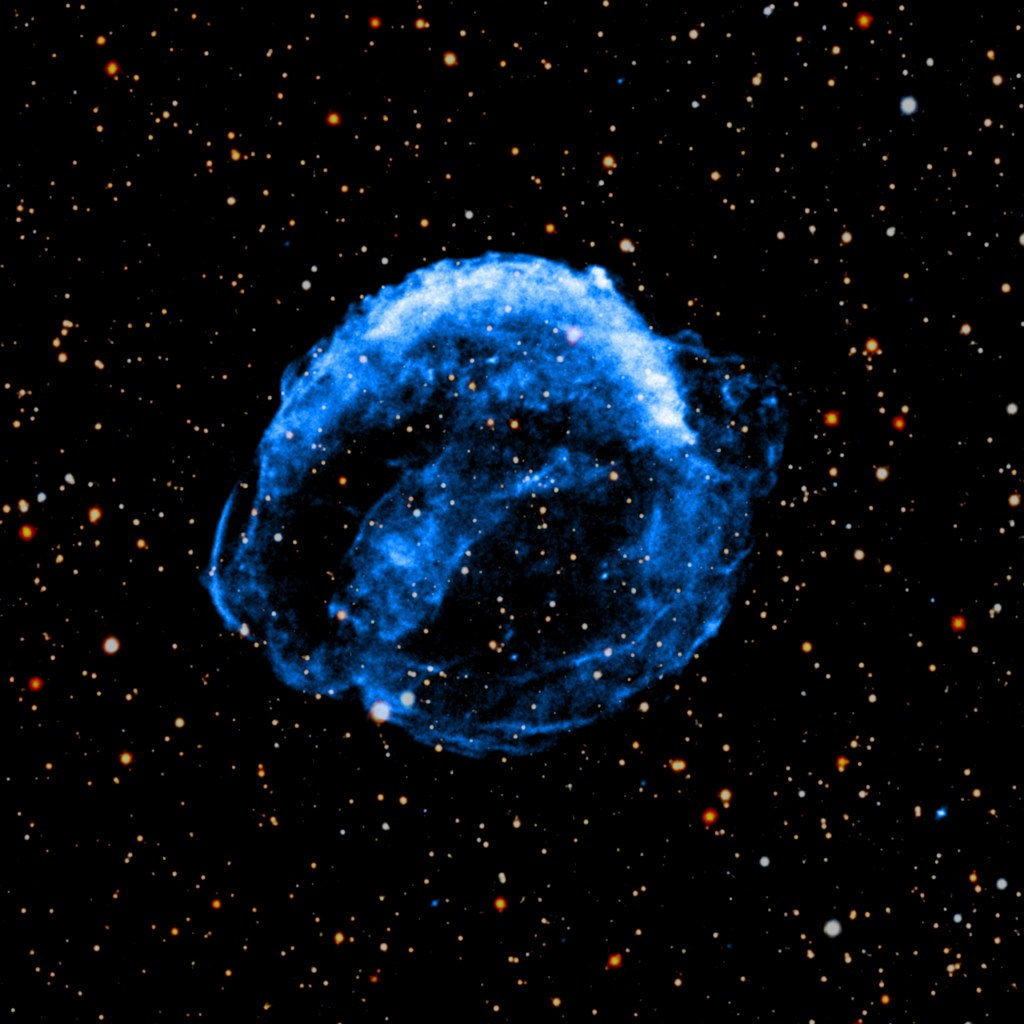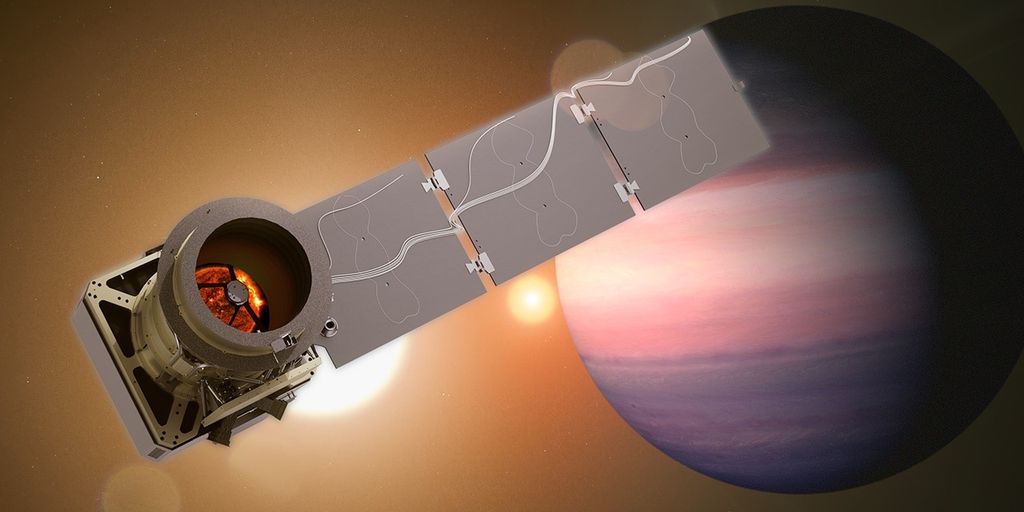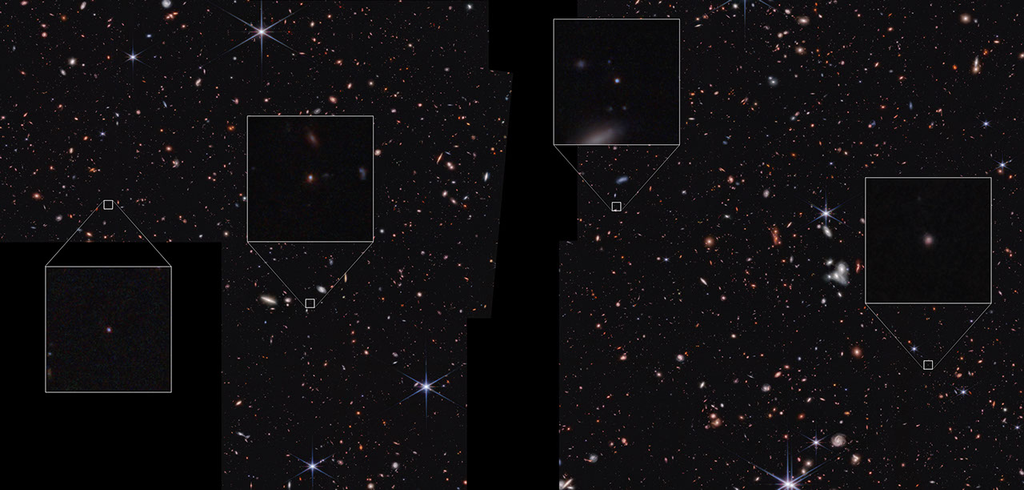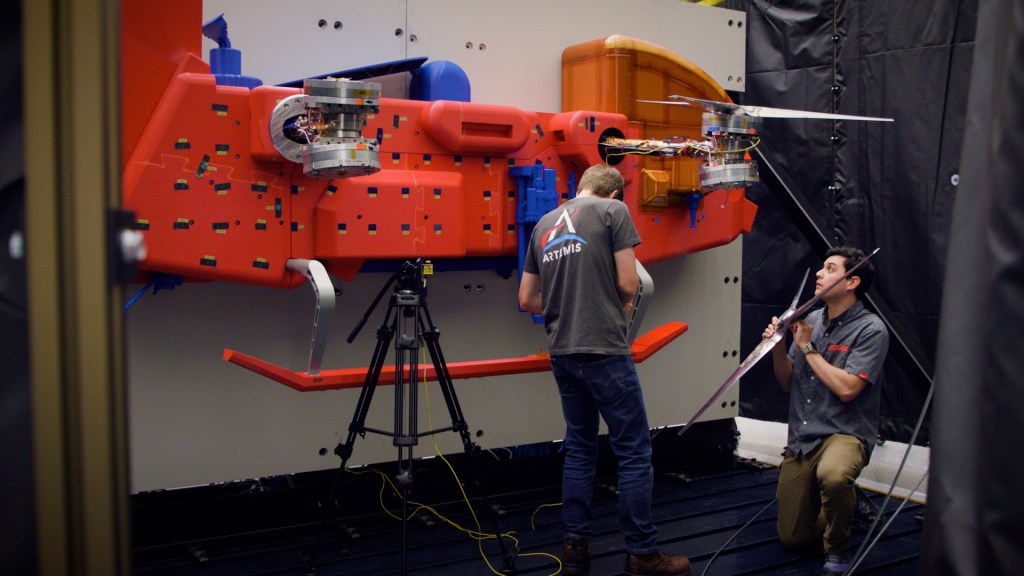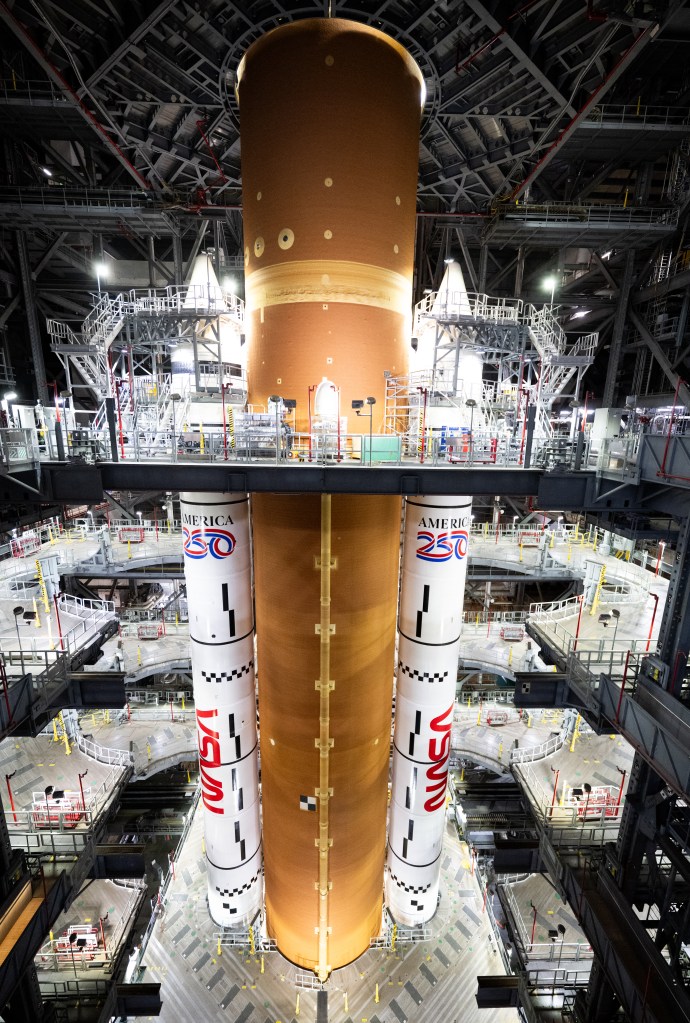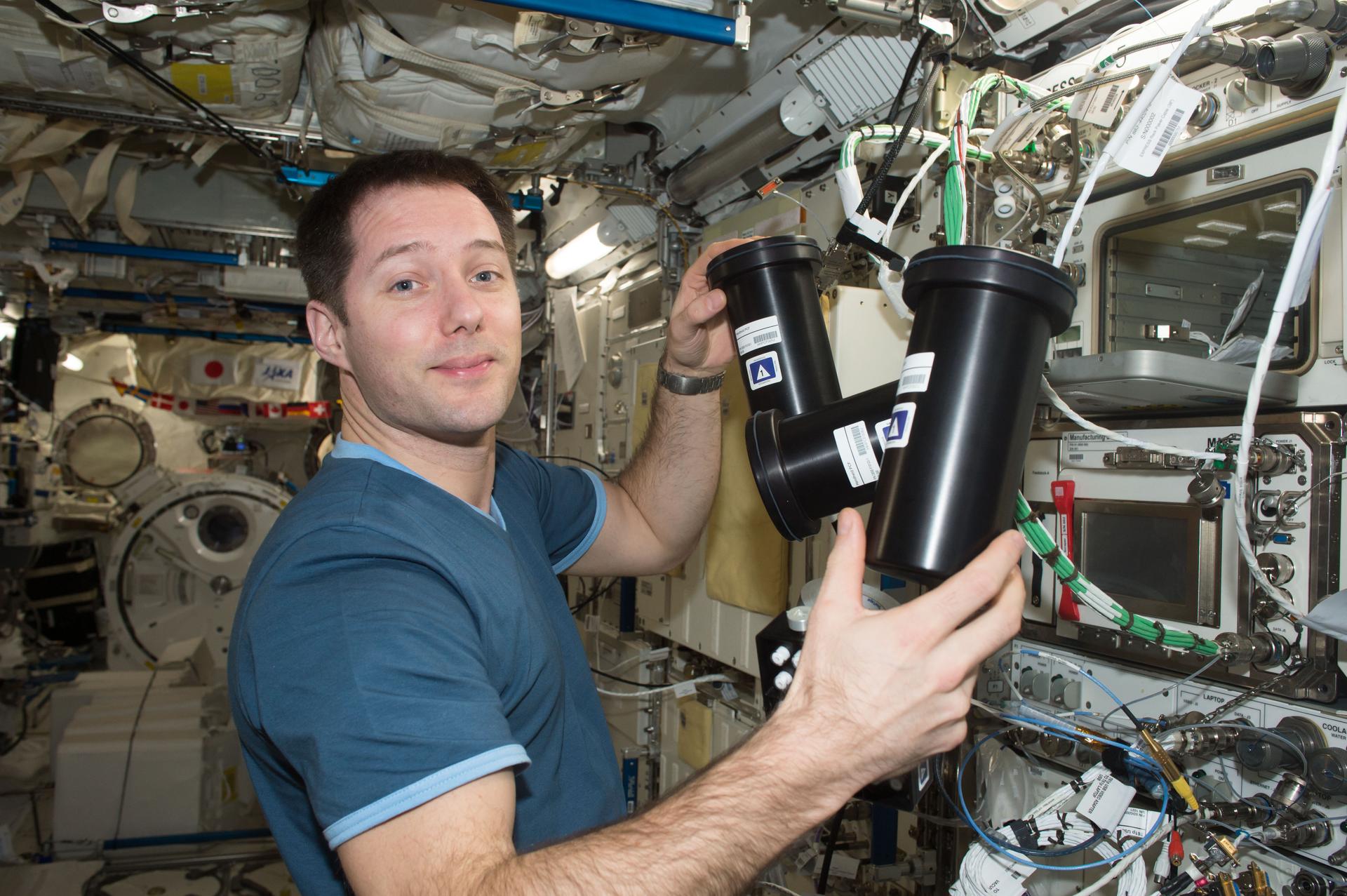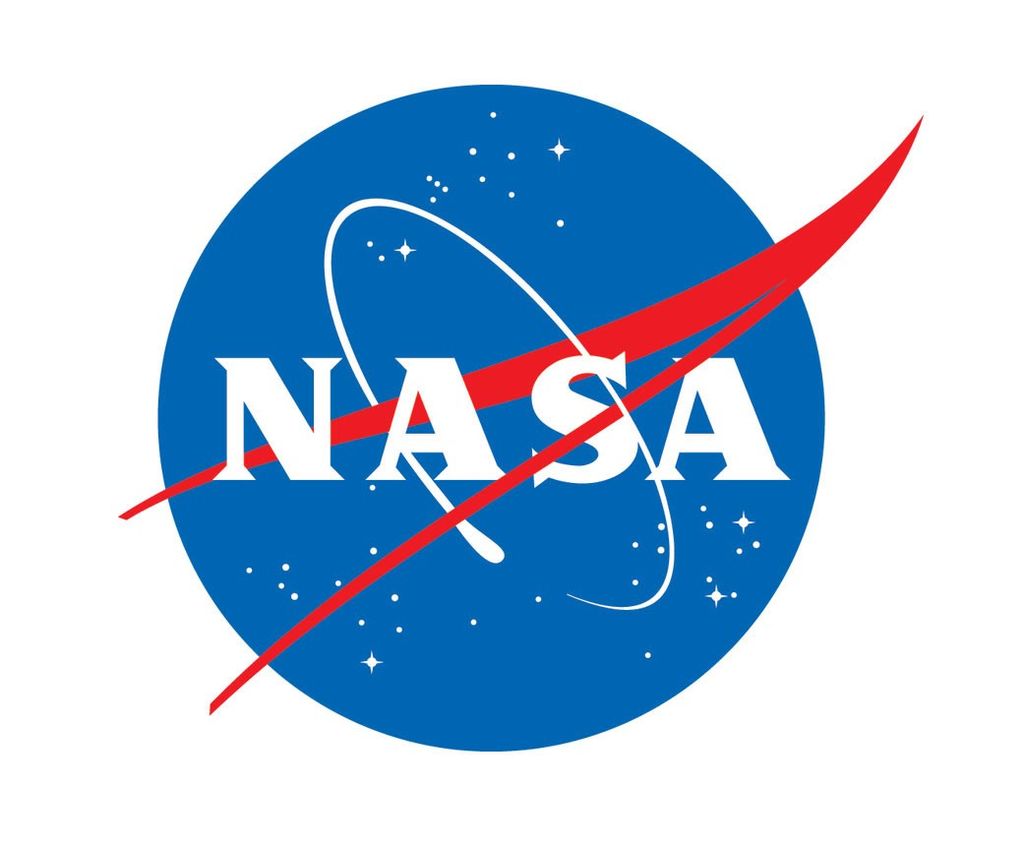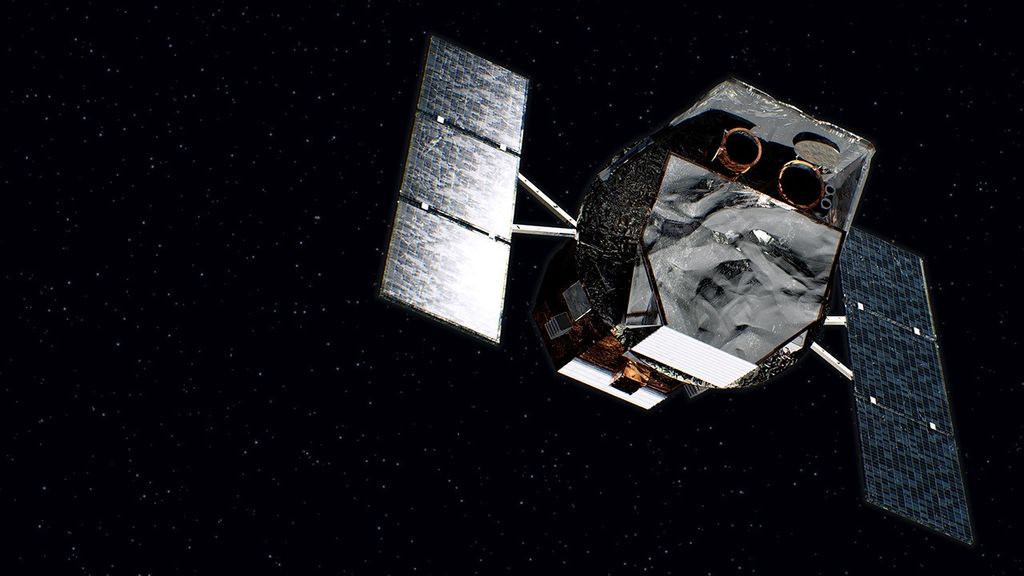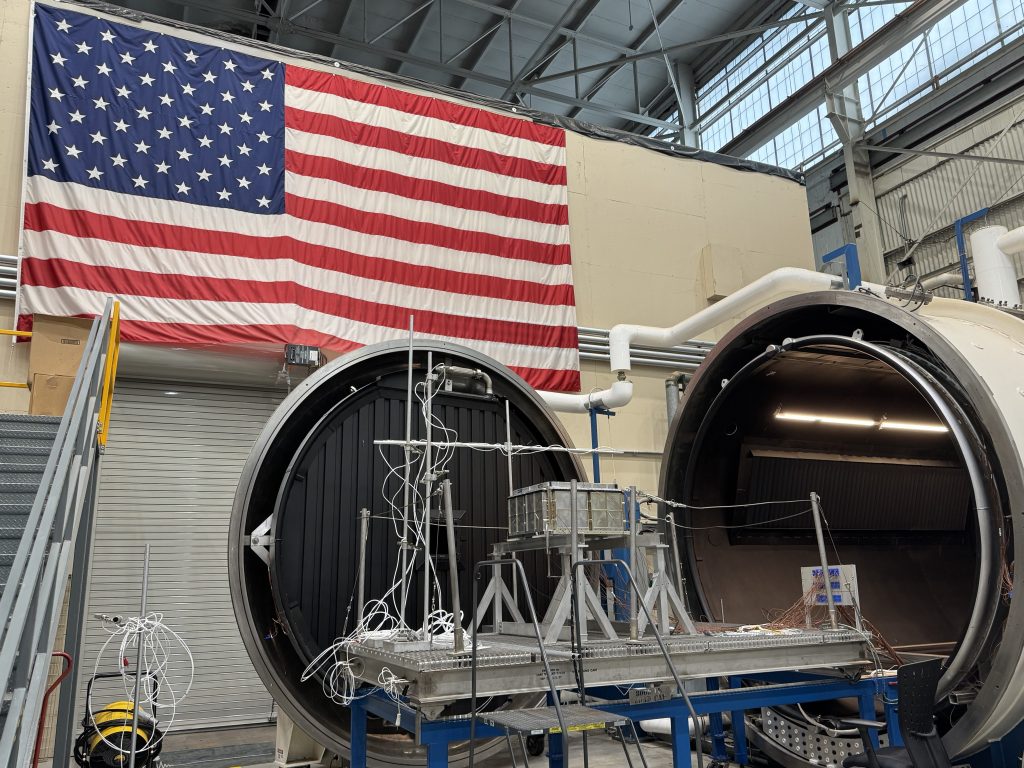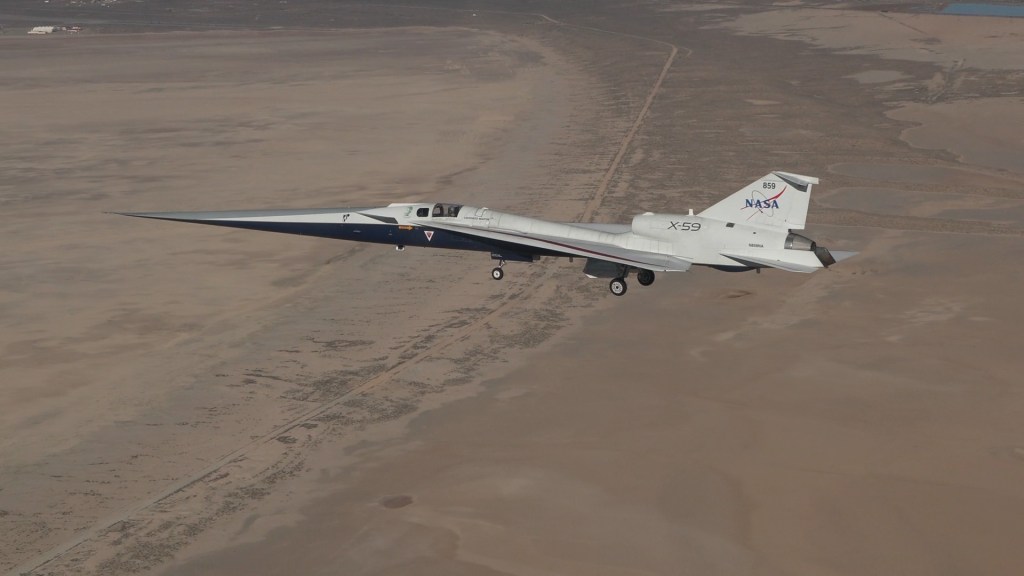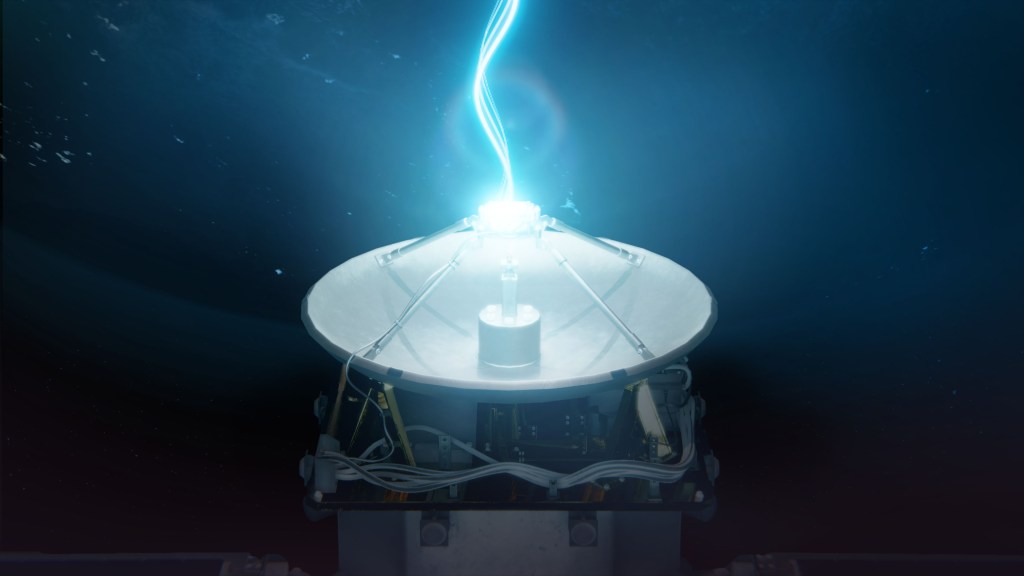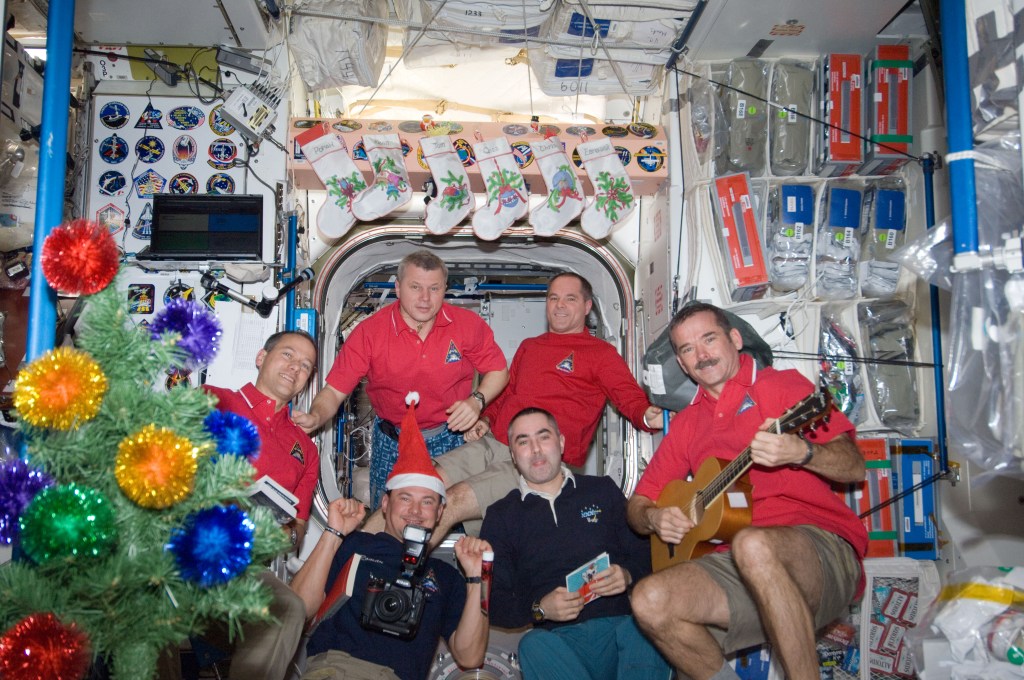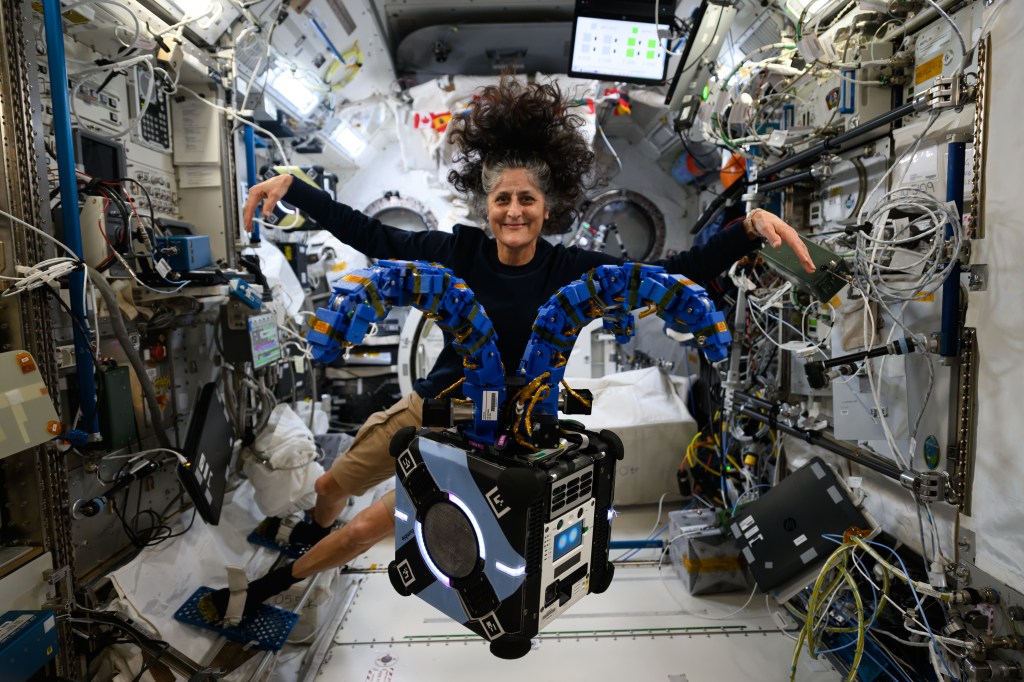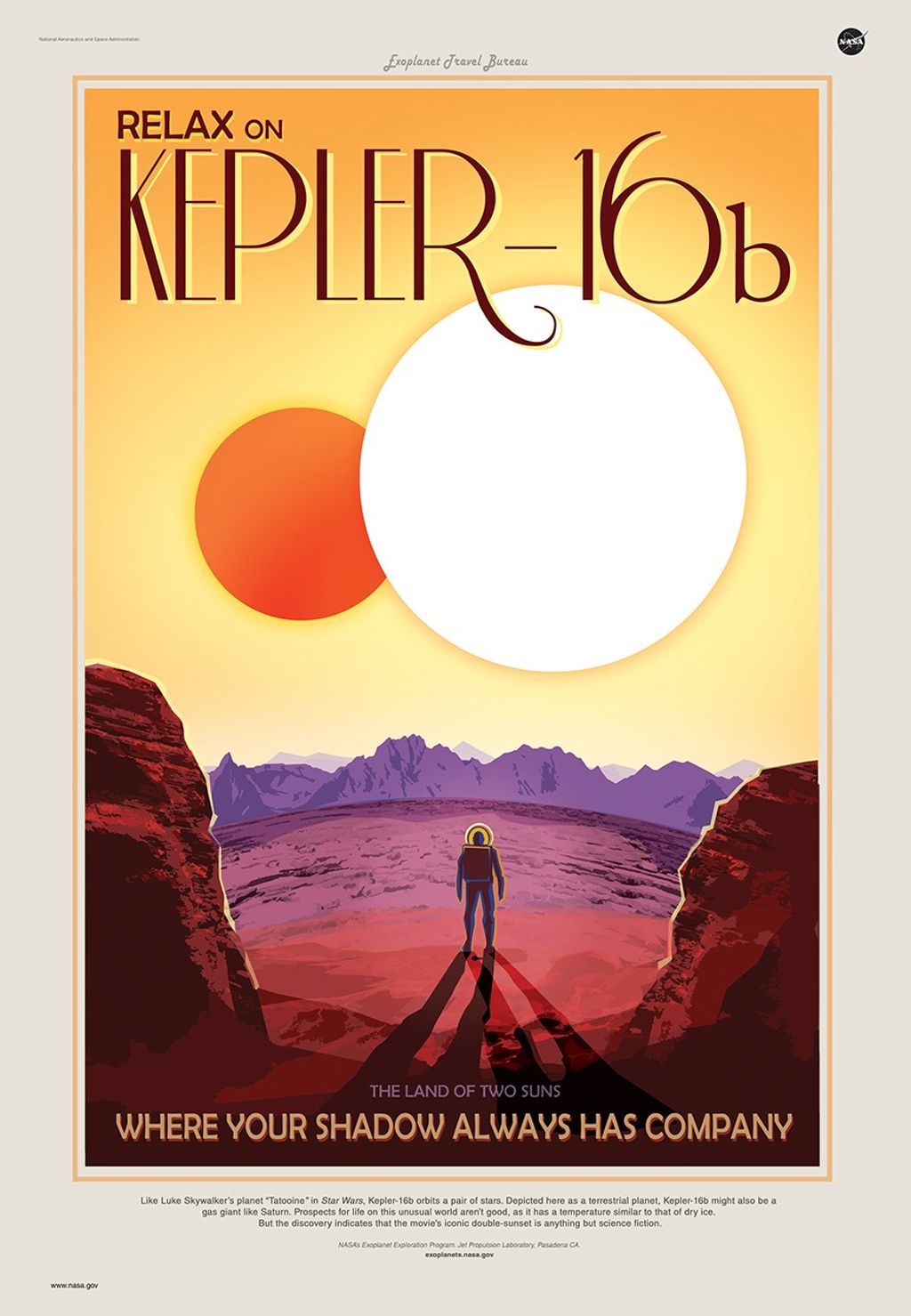ASTRONAUTS IN SPACE CHAT WITH REGIONAL EDUCATORS
July 15, 2003
Release: 03-41
Living in space can make a person more appreciative of the Earth’s variety. It can also increase one’s capacity to tolerate hot sauce. Remarks ranging from the holistic to the humorous were downlinked today from the crew of the International Space Station to a group of educators gathered at NASA’s Dryden Flight Research Center in California’s Mojave Desert.
Teachers attending a workshop at Dryden asked the two-person crew of the International Space Station how being in space has changed their lives. The 25 teachers, representing five schools, are participating in the new NASA Explorer Schools (NES) program. The program establishes a three-year partnership between NASA and the schools, designed to increase middle school students’ interest, participation, and ability to apply science, mathematics, and technology concepts.
Today’s conversation from space was viewed by the teachers on a large glass screen in Dryden’s auditorium, while a phone patch provided audio communication with a delay of a couple seconds.
American astronaut Ed Lu said his favorite recreation while in space is to look out the window. “I’m only going to get six months here,” Lu told the teachers. After he returns to Earth he can resume other activities like reading. The NASA astronaut said, “The view up here… makes me want to travel the world even more.”
The educators asked several questions about the effects of weightlessness on the body. Russian cosmonaut Yuri Malenchenko, speaking through an interpreter, said full recovery time from a period of weightlessness could sometimes equal the duration of a mission in space. Lu said the first few days back on Earth see rapid initial recovery from weightlessness, but the last 10 percent of the recovery can take months. The two space station residents are studying the effects of weightlessness while they are in orbit, and Ed Lu said they have a stationary bicycle and a treadmill – fitted with elastic bungee cords to keep the astronauts from floating away – on which they exercise regularly.
Lu described the space station’s weightless environment as a phenomenon of the station’s orbital motion, as if it is constantly falling toward, but never hitting, the Earth. While speaking, he quickly drew up his legs close to his body, and floated motionlessly in place, as the teachers at Dryden chuckled at the sight.
During the course of the 20-minute dialog, a test aircraft high over Dryden created a sonic boom that rattled the large glass projection screen as it shook the entire auditorium. Some teachers reacted to the abrupt boom; others, now veterans of the Dryden environment, ignored this daily reminder of flight research.
The teachers brought questions from their compatriots in other NASA Explorer Schools. What emerged was a discussion about everything from ways to use the space station to chart coastal erosion over long periods of time, to the kind of preparation students might consider if they want to become astronauts. Lu said the specialties pursued by future astronauts can be varied. “The important thing is that you find something you really like doing.”
When asked if microgravity has affected his appetite in space, Lu said, “I still like to eat a lot,” to the amusement of the teachers. What he and station mate Malenchenko have both noted is an increased capacity to consume spicy hot sauce on food. Lu said in space he consumes quantities of hot sauce that would render him unable to speak back on Earth. “Up here it tastes just great.”
When mission control announced the end of the available link period between the teachers and the astronauts, thanks and goodbyes were said, and Ed Lu playfully rotated upside down and floated off-camera while Yuri Malenchenko remained in view, and upright, until the end of the transmission.
-nasa-
Note to Editors: (More information about the NASA Explorer School program and the teacher event at Dryden Flight Research Center is available at /centers/dfrc/Newsroom/NewsReleases/2003/03-39.html or by calling Beth Hagenauer at [661] 276-7960.)

